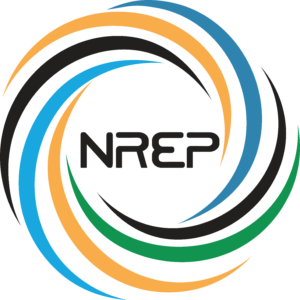NREP Highlights
The 5th edition of the Annual Renewable Energy Conference & Expo, a premier event fostering innovation and collaboration in the renewable energy sector.
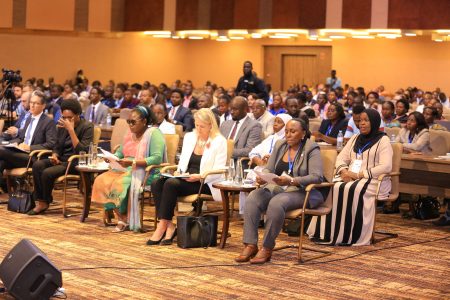
The Ministry of Energy and Mineral Development, in partnership with the National Renewable Energy Platform, is excited to announce the Renewable Energy Conference & EXPO (REC25 & EXPO) from 20th October to the 22nd of October, 2025, Kampala, Uganda (venue to be communicated). This event will be a pivotal moment in our journey towards a sustainable energy future, and we invite you to be part of it.
Join us as we bring together experts, innovators, policymakers, and stakeholders to discuss and advance the clean energy agenda. Your participation is crucial to the success of this conference, and we look forward to your invaluable contributions.
Renewable Energy Training Centre Handover Ceremony
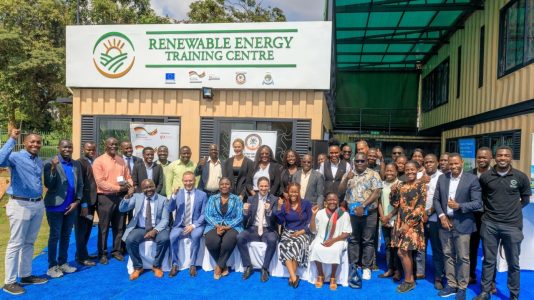
On 18th July 2025, the Renewable Energy Training Centre (RETC) was officially handed over from GIZ to the Ministry of Energy and Mineral Development. Established in 2016 through a partnership between GIZ Uganda, Nakawa Vocational Training Institute, and the Cologne Chamber of Skilled Crafts and Small Businesses (HWK), the centre was developed with both financial and technical support from the German government and the European Union.
Nyendo-Masaka In Promoting Electric Cooking Solutions in Uganda
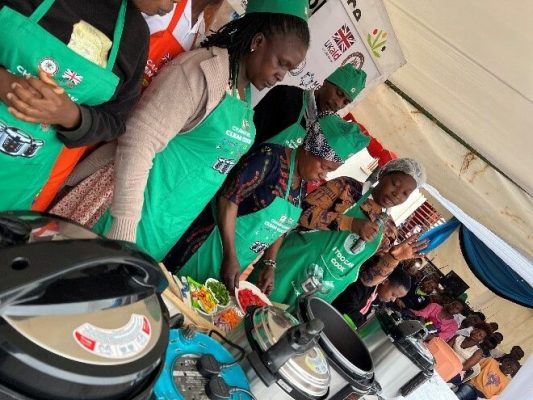
Nyendo town in Masaka hosted a clean cooking event with the aim to educate the public about the benefits of switching to cleaner cooking options, such as reduced fuel costs, improved health, and environmental conservation.
Driving Clean Cooking Adoption: NREP and Development Partners Meet to Strengthen Momentum Across Uganda
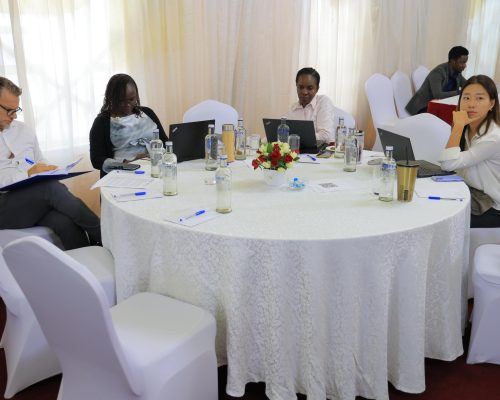
The BCCeC project targets multiple areas across Uganda, aiming to accelerate the adoption of electric cooking (e-cooking) and other clean cooking technologies such as improved cookstoves and briquettes. Central to this initiative is a strong focus on community engagement, awareness raising, and breaking down persistent myths around electric cooking.
Nansana Takes the Lead in Promoting Electric Cooking Solutions in Uganda
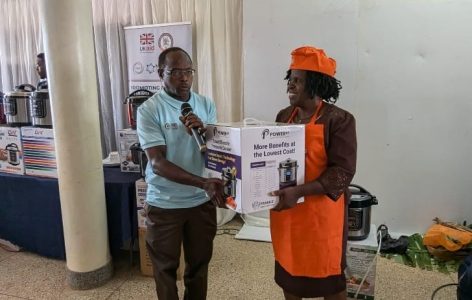
On 2nd July 2025, the town of Nansana in Wakiso District became the epicenter of Uganda’s clean energy movement as it hosted the official launch of the Behaviour Change Communication for Electric Cooking (BCCeC) Project.
Clean Cooking Knowledge Management Workshop: A step Towards Sustainable Energy
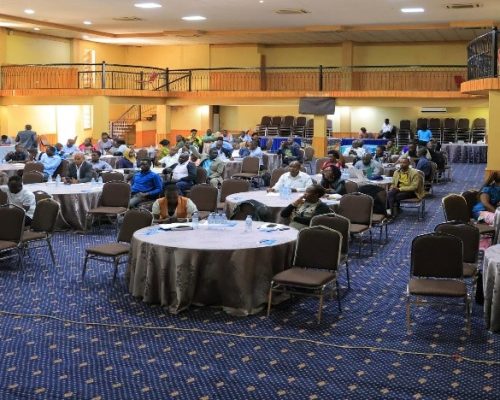
On Wednesday July 2nd, 2025, the National Renewable Energy Platform (NREP) held a workshop on clean cooking knowledge management products in Uganda. This initiative is part of the Behavioral Change Communication for electric Cooking (BCCeC) project, funded by UK AID and Modern Energy Cooking Services (MECS), with support from (MEMD) the Ministry of Energy and Mineral Development’s Clean Cooking Unit (CCU).
Renewable Energy Competition, 2025
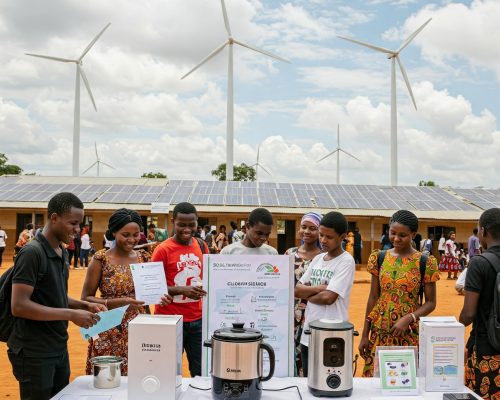
The 3rd Renewable Energy Competition is a joint initiative by the National Renewable Energy Platform (NREP) and STEPUP Standard Limited aimed at engaging young people in activities that drive behavior change and adoption of clean-cooking technologies across Uganda.
Over 88% of cooking fuel in Uganda is obtained from biomass energy, majorly firewood and charcoal. This consumption rate worries sustainable initiatives, coupled with health challenges arising from indoor air pollution and continuous exposure to smoke.
Through this competition, we aim to create awareness, clear misconceptions, and showcase the benefits of clean cooking through tailored messages and community engagement, contributing to the National Development Plan IV target of increasing clean energy use for cooking from the current 25% to 50% by 2030.
RE Sector Highlights Around the Region and Globe
1. Uganda’s Utilities 2.0 Model Shows How Collaboration Can Accelerate African Electrification

With over 600 million people across Africa still lacking access to electricity, the continent faces one of the world’s most pressing development challenges: securing adequate reliable, affordable energy for economic growth, job creation, healthcare, education, and clean water access. Despite decades of investment and numerous initiatives, electrification rates have struggled to keep pace with population growth, leaving entire communities trapped in energy poverty and economic potential unrealized. In Uganda, the challenge is stark. Approximately 23 million people, about half of the population, remain unconnected to electricity. In rural areas, access drops even further, and even where connections exist, outages are frequent and costly. Productive use of energy, a key driver of economic transformation, remains low.
2. Uganda to begin ethanol fuel blending in 2025 to cut import costs, promote cleaner energy
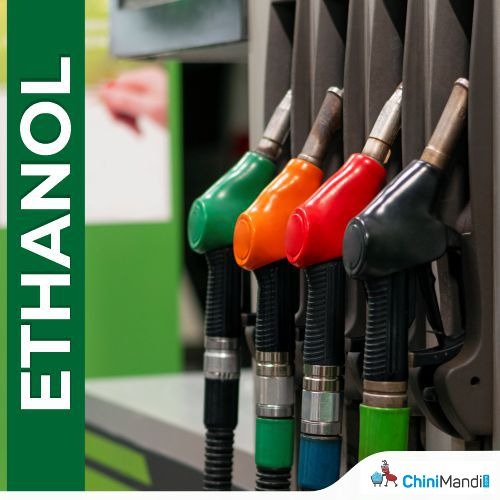
Starting January 2026, Uganda will require all fuel distributors to blend locally produced ethanol into the petrol sold nationwide, in a move aimed at lowering fuel costs and promoting cleaner energy use, reports Business Insider Africa. The announcement was made by Energy Minister Ruth Nankabirwa, who said the Uganda National Oil Company (UNOC) will lead the implementation of the blending process. “This initiative is not just about improving fuel quality; it’s a significant step towards environmental protection and reducing the overall cost of fuel for Ugandans,” Nankabirwa said, as reported by Reuters. Under the new policy, fuel suppliers must begin by blending 5% ethanol into petrol, with the percentage expected to increase to 20% over time, depending on local ethanol production capacity.
3. Clean cooking drive across Kenya, Uganda and Zambia

Tens of thousands of households across Kenya, Uganda and Zambia are set to have access to electric induction cookers under a new clean cooking programme. The African Development Bank (AfDB), via its Sustainable Energy Fund for Africa (SEFA), has awarded a $4 million reimbursable grant to support the Burn Electric Cooking Expansion Programme (BEEP). This initiative aims to distribute 115,000 Burn ECOA electric induction cookers to low income, grid connected households reliant on charcoal in Kenya, Uganda and Zambia. The programme is spearheaded by Kenya based Burn Manufacturing Company, a clean cookstove firm active in more than ten African markets.
4. Uganda Deepens Energy and Mining Partnership with UK Ahead of COP 2025
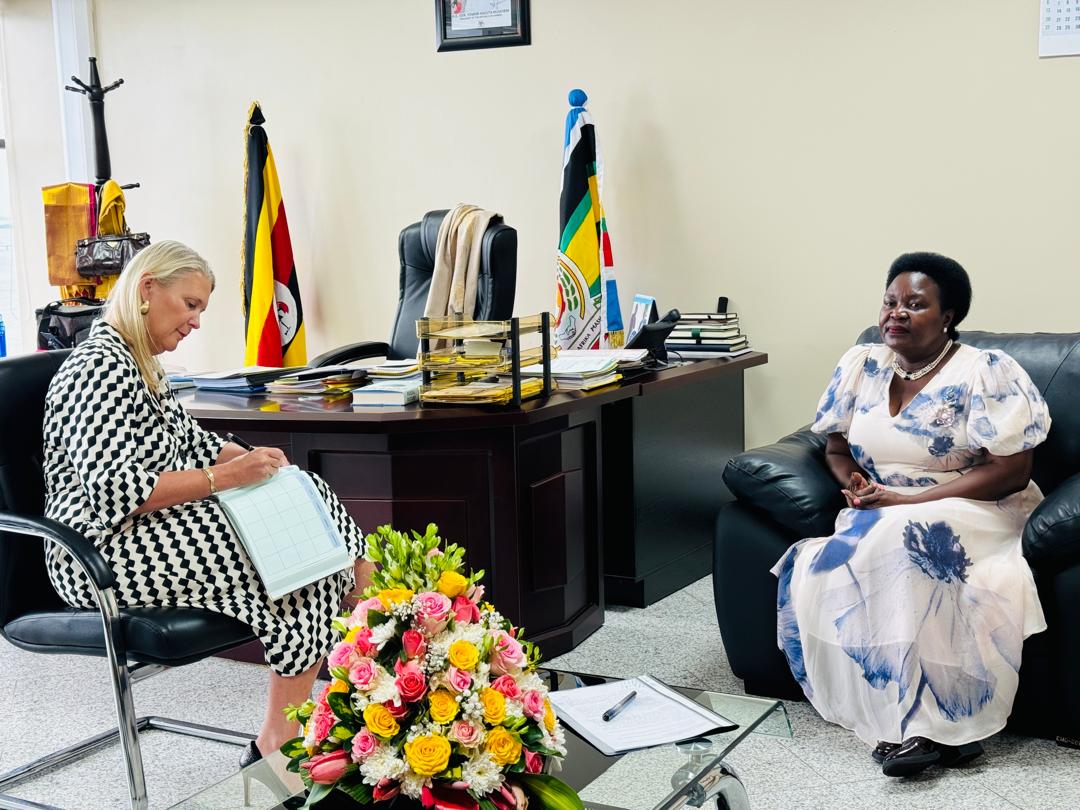
Uganda is strengthening its partnership with the United Kingdom to fast-track its energy transition, upgrade electricity infrastructure, and unlock the potential of its mineral wealth, o!icials announced following a high-level meeting at Petroleum House in Entebbe. The talks, held between Uganda’s Minister of Energy and Mineral Development, Ruth Nankabirwa Ssentamu, and the British High Commissioner to Uganda, Lisa Chesney, focused on expanding UK support for Uganda’s energy and mining sectors. Minister Nankabirwa praised the UK’s role in advancing renewable energy initiatives in Uganda, particularly through the Renewable Energy Feed- in Tariff (REFiT) programme, which has catalyzed private investment in clean energy.
5. Let’s empower women for clean energy solutions

The Ugandan government should empower women for sustainable clean energy solutions by integrating gender perspectives into energy policies, providing targeted training and access to resources, and fostering leadership opportunities for women in the clean energy sector. Renewable, clean energy and gender equality are preconditions for sustainable development and for tackling climate change, as envisioned by the Sustainable Development Agenda 2030. It should be noted that Women’s knowledge, empowerment and collective action are central to !nding and building more environmentally sustainable pathways, to manage natural resources in a more equitable and sustainable way, adapt to climate change, and secure energy services.
6. Schools urged to adopt energy-saving stoves to protect environment

Schools across Uganda have been urged to adopt energy-saving stoves as part of broader efforts to conserve the environment and reduce deforestation caused by excessive !rewood consumption. According to environmentalists, traditional cooking methods in many schools are contributing signi!cantly to the depletion of forest cover and increased carbon emissions. Mr Robert Kavuma, president-elect of Kisugu Victoria View (KVV) Rotary Club, said energy-saving stoves use signi!cantly less fuel and emit less smoke compared to traditional three-stone !res or outdated stove models. "These stoves not only help protect the environment but also reduce health risks for kitchen staff and cut down on operational costs for schools," Kavuma said.
7. More than 90% of renewable projects now cheaper than fossil fuel alternatives – Report

Approximately 91 per cent of newly commissioned renewable energy projects, such as wind and solar, delivered electricity at a lower cost than the cheapest fossil fuel options in 2024. According to the International Renewable Energy Agency (IRENA), the development maintains the renewables’ cost leadership in global power markets. “In 2024, solar photovoltaics (PV) were, on average, 41 per cent cheaper than the lowest-cost fossil fuel alternatives, while onshore wind projects were 53 per cent cheaper,” reads the 2025 Renewable Power Generation Costs report. “Onshore wind remained the most affordable source of new renewable electricity at $0.034 (Sh4.4)/kWh, followed by solar PV at $0.043 (Sh5.6)/kWh.” In comparison, back in 2010, onshore wind energy was 29 per cent more expensive than fossil fuel sources, while solar photovoltaics (PV) were approximately 710 per cent more costly. The agency attributes the cost declines to technology improvement, competitive supply chains and economies of scale. The report also notes that battery storage costs have dropped by 93 per cent since 2010.
REC25 & EXPO
Discover limitless potential in renewable energy at REC25 & EXPO. Secure your spot by registering today
Upcoming Events
USEA National Solar Expo 2025 – 2nd Edition!
The Uganda Solar Energy Association(USEA) is thrilled to announce the 2nd Edition of the USEA National Solar Expo 2025 – Uganda’s premier event for solar and renewable energy innovation! This year’s expo will bring together industry leaders, policymakers, innovators, and energy enthusiasts to explore the latest advancements and opportunities in solar energy and sustainability.
What to Expect:
- Cutting-edge solar technologies & solutions
- Expert panels & insightful discussions
- Networking with key stakeholders
- Strategies for a greener, sustainable future
Date: 28th – 30th August 2025
Location: Kampala, Uganda
Be Where Innovation Meets Impact
Join us at upcoming NREP events designed to spark ideas, foster partnerships, and shape a sustainable future.
Funding Opportunities
Call for Proposals Now Open: Digital Financial Services Grant – July 2025 Cycle
The Interledger Foundation (ILF) invites applications for the second round of its 2025 Digital Financial Services Grant Program.
GET.invest Finance Advisory
As the Team Europe One Stop Shop, GET.invest provides flexible advisory services, supporting your project or company to become investment ready and access financing that aligns with your needs.
Digital Energy Challenge
The aim of the Digital Energy Challenge is to support the development of innovative solutions for increased energy access, to facilitate the integration of renewable energies and to improve energy operators’ performance.
D-Prize Challenge
Startup grants of up to $20,000 are available for entrepreneurs launching new organizations. The goal is to increase the number of social impact ventures—whether for-profit, NGO, or charity—focused on addressing extreme poverty in low- and middle-income countries.
OPEN Fund for Women-Led Energy Businesses
Women entrepreneurs in the energy sector can apply for up to $100,000 in investment to scale their clean energy businesses.
Spark + Africa Fund
From microfinance institutions in rural Benin, to stove manufacturing companies in Zambia, to vertically-integrated fuel utilities in Kenya, we offer a range of financing solutions to companies throughout the supply chains of numerous clean and modern cooking fuels and appliances. The common thread is that companies play a role in scaling up the use of alternatives to dirty and unsustainable cooking practices in Africa.
Productive Use Financing Facility
A program by Karlsruhe Institute of Technology (KIT) and Circle Innovation supporting GreenTech, HealthTech, AgriTech, and e-mobility start-ups with tech development, market validation, and access to Germany’s innovation ecosystem.


